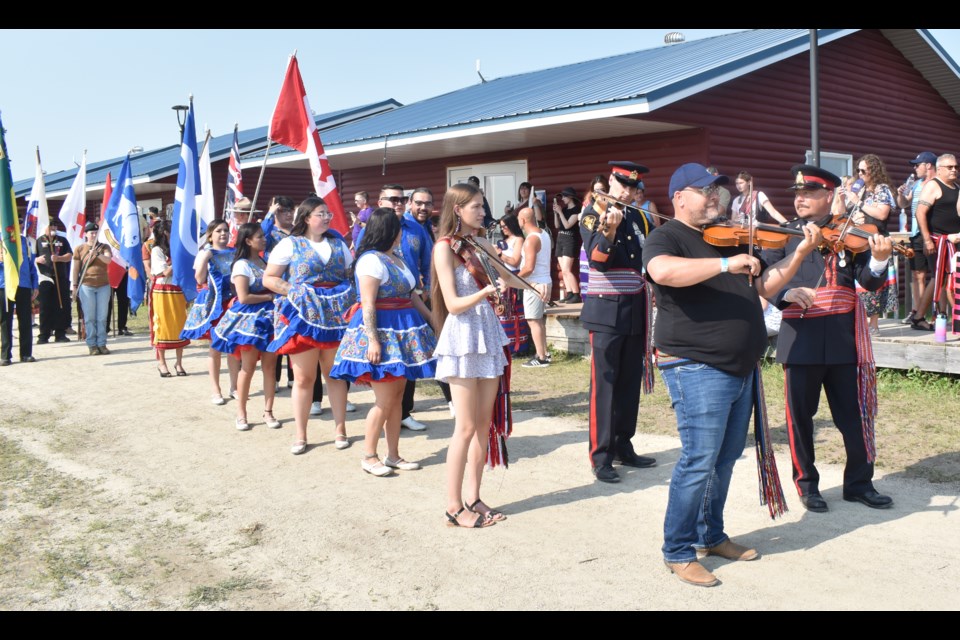BATOCHE — Métis Nation-Saskatchewan President Glenn McCallum is pleased with how the organization has grown in the last seven years, from signing agreements to improve the lives of its citizens to building partnerships with various communities.
McCallum made his remarks after the opening ceremony of this year's Back to Batoche Days 2024 on Friday, July 18, at the Batoche festival grounds. Over 200 provincial and national leaders joined the thousands of Métis citizens and non-Métis people in the celebration.
Here is a brief rundown of what has happened in the last six years: In July 2018, MN-S and Parks Canada signed the Framework Agreement for Advancing Reconciliation through the Recognition of Indigenous Rights and Self-Determination.
In December 2020, MNS and Parks Canada agreed to discuss and explore options for managing the Batoche National Historic Site under the 2018 agreement. Four years later, Parks Canada transferred 690 hectares of land west of Batoche to MN-S.
In December 2023, bison were transported from Grasslands National Park to the Batoche lands near the Batoche National Historic Site. The herd will then be relocated to the 690-acre Batoche lands on the west side of the Batoche National Historic Site.
On Friday, July 19, MN-S and Parks Canada signed a memorandum of understanding to renew their commitment to co-managing the Batoche National Historic Site. The MOU outlines how both parties work together to ensure visitors experience Métis culture, history, and language.
"It is only the start. We have over 80,000 Métis and communities right across the province. To be able to have this land where the last resistance happened is beautiful to see. We bought a parcel of land and have the land given to us by the Federal Government," said McCallum.
"It is a start. There is much more conversation to be had with Métis people across the province. The evidence is there to see the happiness and true spirit of the Métis [people] coming out in our relationships."
McCallum added that there is still much work to be done, mainly in earning MN-S self-governance status. Early this year, Bill C-53 was adopted to recognize the ability of self-governance of Métis governments of Alberta, Saskatchewan, and Ontario.
"We've been working hard; it's not as if we just started. We've been doing that since I became president. The conversations have been happening. We need to sign something that obligates the [federal] government to be able to support our making government," he said.
"It is an exciting time for the Métis Nation. There are many voices to be heard, but we have a good team. Our staff are doing a great job engaging with our people across the province. The relationships that we've had helped the Métis Nation."
McCallum said signing new agreements and MOUs and forging partnerships with various sectors shows their commitment to growing and promoting Métis culture, heritage, history, identity, language, legacy and values.
"We signed our MOU again, the citizenship agreement. Then, teaching governance at the University of Saskatchewan. We just signed our research agreement. Every agreement must be reviewed to consider how it impacts us and, more importantly, how we are involved," he added.




